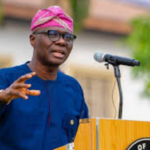
THE Academic Staff Union of Universities has again commenced mobilisation of its members for another nationwide strike. Its national president, Emmanuel Osodeke, said the union has continued to give the government a long rope as regards its demands. It will be quite unfortunate if the government, like in previous years, allows the union to embark on a strike that will shut down the system.
Previous strikes in the last four years followed the government’s failure to implement the 2020 MoA, and the failure to adopt the University Transparency and Accountability Solution for salaries and allowances. Other niggles are the failure to release the Earned Academic Allowances for lecturers, improve welfare, fund university revitalisation, and academic autonomy.
These are all germane to the development of tertiary institutions, yet the Federal Government continues to display insensitivity to the plight of the universities, the staff, and especially of students.
The government must find the funds. It should do this by cutting luxuries and waste elsewhere.
It is a question of priorities. Education should attract the necessary funding. But insensitive as ever, political leaders are frequently photographed celebrating the matriculation or graduation of their children in overseas universities. A few opt for local high-priced private universities. They have lost faith in Nigeria’s public education system. It reflects the country’s poor leadership. Though the political leaders are entrusted with the power to transform the sector, they refuse to do so.
Many, including this newspaper, had long urged ASUU to adopt alternative strategies beyond the destructive strike option. While the dons should not give up on this, their persistent rebuttal that they are dealing with deaf and uncaring leadership has won them wide sympathy.
Students and parents/guardians who once deplored ASUU’s frequent strikes are now staging peaceful protests across the country condemning the government’s irresponsibility. They should not relent.
The government must honour its agreements, pay lecturers’ EAA and revitalise the deplorable tertiary education sector. According to the Centre for World University Rankings’ 2022 report, no Nigerian university is among the world’s top 1,000 universities. The University of Ibadan was ranked 1,172; the University of Nigeria placed 1,775. But Cairo University was ranked 531; the University of Johannesburg, 629.
Nigerian universities suffer from underfunding and are under-equipped in material and human resources. Frequent shutdowns and subsequent rushed teaching and examinations also lower standards.
ASUU’s demands include reviewing the proliferation of universities. The government and the National Assembly should stop the irrational creation of higher institutions.
Everywhere, it takes years of preparation and planning to establish one; but Nigeria’s flippant politicians whimsically create universities, polytechnics, and colleges of education. They “upgrade” colleges to universities “with immediate effect.” The reckless political class has turned higher institutions into constituency projects. This is primitive and counterproductive.
It is absurd that the Federal Government, which cannot service a long-standing MoA of N1.2 trillion, is busy establishing specialised universities for the Army, Navy, and Air Force separately. The Nigeria Police also has its university. Nigeria established the Nigeria Defence Academy in 1964 and it can be upgraded to meet the manpower needs of the country.
Nigeria should commit more resources to the upgrade of public universities. Its behaviour is hurting the youth. A new policy enacted by the United Kingdom: ‘High Potential Individual Visa,’ would now exclude Nigerian graduates from qualifying to apply for jobs in the UK based on the requirement that graduates must be from universities in the top 50 global rankings, reports GOV.UK.
The Federal Government should therefore fund the universities appropriately and pay commensurate wages to the lecturers. It should agree with the union and faithfully implement a phased release of the revitalisation fund. The government can look beyond the normal annual budgeting appropriation process to raise the money. It should go the extra mile as it does for security funding.





